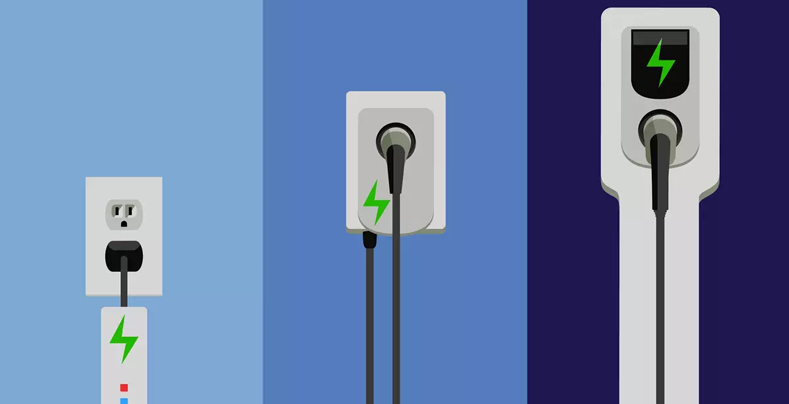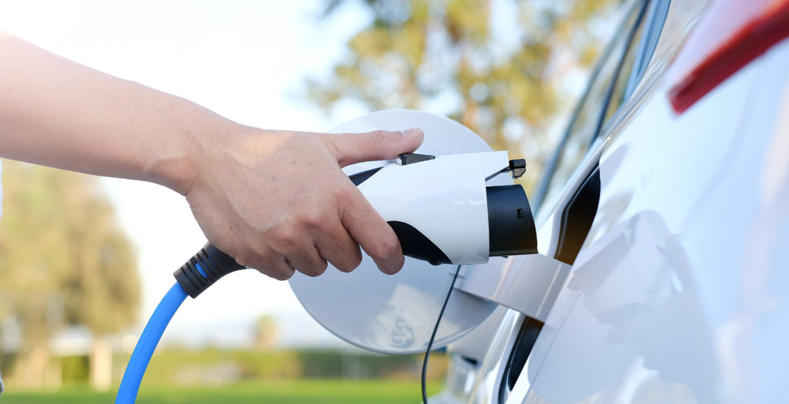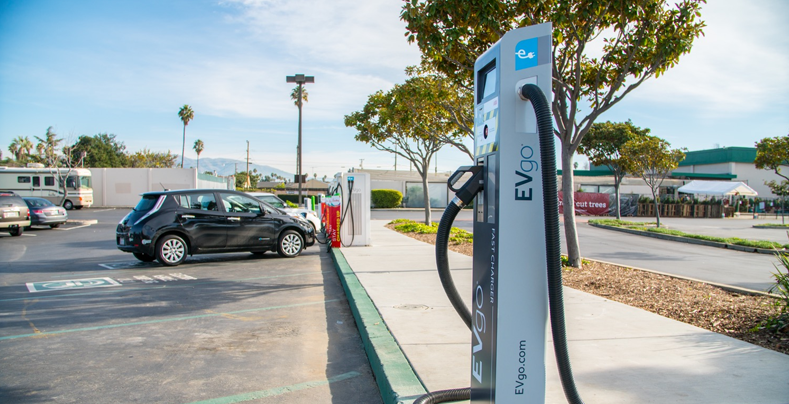How Long Does It Take to Charge an Electric Car
It is possible to charge your electric car at home or in any public charging station. Your car may take 30 minutes to charge fully, or it could take up to half a day. The charging time can be affected by the various aspects:
- Battery size
- Car model
- State of charge
- Environmental factors.
How Long Does It Take to Charge an Electric Car?
Charging an electric vehicle can take as little as 30 min or as much as 12 hours. The size of the battery and the speed at which it charges will determine the time required to charge an electric car.
- With a 7kW charger, a typical electric vehicle (60kWh) can be charged from empty to full in less than 8 hours.
- With a 50kW fast charger, you can increase the range of many electric vehicles by up to 100 miles in just 35 minutes.
- The larger your battery is and the slower your charging point, the longer it will take to charge to full.
Charge an EV at a Charging Station
A 150kW rapid charger can charge an electric car with a 60kWh battery in as little as 30 mins. You can charge a car using a 7kW charger in less than 8 hours, and a 22kW charger will take around 3 hours.
Rapid chargers offer the fastest charge time and the most expensive price. This is ideal if you are on the road but want to continue on your journey. It's cheaper to use a charger with a lower kW rating if you are not in a hurry. You can charge your car overnight or even while you are out running errands.
Charge an EV at Home
A 7kW charger at home can charge a 60kWh battery for an electric car from empty to full in less than 8 hours. This is the perfect amount of charging time for your EV while you sleep. It would take 16 hours for a slower charger of 3.7kW to achieve the same result.
There are 22kW chargers available, but they're not often used. They offer faster charging compared to lower-rated chargers, but their installation and operation require three-phase electricity - which is not common in residential properties.
EV Charging Levels and Charging Time
Level |
Power Output |
Charging Time(60 kWh battery) |
Typical Uses |
|
Level 1 |
1.4-3.3 kW |
20-40 hours |
Overnight charging at home |
|
Level 2 |
7-19.2 kW |
3-8 hours |
Home charging and public charging stations |
|
DC Fast Charger |
50-350 kW |
0.5-2 hours |
Public charging stations for long trips |
Level 1 Charger

The simplest and slowest way to charge an electric car (EV) is with a 120-volt AC plug. This is typically the same outlet type used for household appliances.
Below are the main characteristics of Level 1 Charging:
- Power Output: 1.4 to 3.3 kW
- Charging Time: Between 20 and 40 hours for an EV battery
- Cost - Relatively cheap since it uses existing household electricity
- Convenience: This can easily be done with any standard outlet
- Perfect for: Overnight Charging at Home, Top-up for Short Trips
Although Level 1 charging may be the easiest option for charging at home, it's not for everyone. It is important to consider the following factors:
- Driving habits Level 1 charging is not sufficient for long-distance driving or if you need to charge your car quickly.
- Battery Size: Larger batteries take longer to charge, and Level 1 charging is even slower.
- Public charging availability: Level 1 charging is not a long-term viable solution if you do not have access to DC or Level 2 fast chargers.
Level 2 Charger

The Level 2 charger uses a 240-volt AC circuit. This is the same circuit type used to power appliances such as ovens and dryers.
Below are some of the key features of Level 2 Charging:
- Power output: 7.19.2 kW (significantly more than Level 1)
- Charging Time: From 3-8 hours (much faster) for a typical EV Battery
- Cost Installation of a 240-volt circuit is required, but it offers faster charging.
- Convenience: Can be installed at home or public charging stations
- Ideal: For regular charging at home, topping off for longer trips, and as the primary charging option for EV owners
There are some other considerations that you should also keep in mind.
- Cost of installation: Professional assistance may be required to install a dedicated circuit at 240 volts. Additional costs will apply.
- Electrical system in your home: You may need to upgrade the electrical system of your home to meet the increased power demands of Level 2 charging.
- Public charging: Although Level 2 charging has become more common, there may still be some areas where public charging is not available.
DC Fast Charger

DC fast charging, also known as DCFC or Level 3 charging, is the fastest charger to charge an electric car (EV). The car's onboard charging system is bypassed, and the direct current (DC) electricity used instead reduces the time it takes to charge.
DC Fast Charging: Key Features
- Power output: 50 kW to 350 kW (significantly more than Level 2)
- Charging Time: 0.5-2 Hours for a typical EV Battery (much faster than Levels 1 and 2).
- Cost: This is the most expensive option for charging due to its higher energy consumption.
- Convenience: Ideal when traveling for a long time or charging quickly
- Availability Public charging stations are becoming more common but not as widespread as Level 2 chargers.
DC Fast Charging offers several benefits.
- Ultra-fast charging: Offers the fastest method to recharge your EV’s range. It is Ideal for long-distance travel and quick stops.
- Travel time is reduced: Charge time is minimized, allowing for more efficient travel.
- Flexibility Allows spontaneous trips and charging stops without worrying of lengthy charging time.
Factors Affect EV Charging Speed
Some factors can influence the rate at which an electric car (EV) charges and the time required to charge the battery. Here are the most important ones:
Battery Factors:
- Battery Size: Bigger batteries take longer to charge. This is because larger batteries store more energy and require more electrons to reach their full capacity.
- Battery Type: Different technologies of batteries have different charging speeds. The most common battery type for EVs is lithium-ion. This technology offers faster charging than older technologies such as nickel-metal hydride.
- Temperature of the battery: Extreme temperature, hot or cold, can have a negative impact on charging speed. The battery's temperature should fall within a certain range to ensure optimal performance.
- Battery Health: As battery capacity declines with age, charging speed can also be affected.
Charger factors:
- Charger Type: A wide range of electric vehicle chargers have different power outputs and charge speeds. Fast chargers can provide up to 50kW, while slow chargers are typically 3-7kW. The fastest chargers are superfast chargers that can reach up to 150kW. However, they are not widely available.
- Cable Type: The type of cable used to connect your car to the charger will also affect charging speed. Thick cables with low resistance can handle a higher current flow and result in faster charging.
Vehicle Factors:
- Vehicle Onboard Charger (OBC) This OBC converts AC power from the charging device to DC power. The maximum rate of charging the vehicle will accept is limited by its capacity.
- Software Limitations: Some manufacturers limit the maximum charge rate of their cars to protect and prolong the battery's lifespan.
Environmental factors:
- Ambient Temperature: As previously mentioned, temperature can impact battery performance and charging speeds. Temperatures below freezing can cause charging to be slower, while temperatures above 100 degrees can damage batteries.
FAQs
How long does it take to charge an EV at a station?
The time it takes to charge an electric car at a station depends on several factors:
Charger type:
- Level 1 (1.4-3.3 kW): 20-40 hours
- Level 2 (7-19.2 kW): 3-8 hours
- DC Fast Charger (50-350 kW): 0.5-2 hours (or 30 minutes for 100 miles)
Battery size: Large batteries take a long time to charge.
State of charge (SoC): A partially depleted battery charges faster than an empty one.
Environmental factors: Cold temperatures can slow down charging.
How far can an EV can go on a full charge?
The range of an electric car on a full charge depends on the model and driving conditions. Generally, you can expect a range of 100-300 miles.
How long does it take to charge an electric car on a normal plug?
A normal plug refers to a Level 1 charger, which typically provides 1.4-3.3 kW of power. It takes 20-40 hours to charge an electric car on a Level 1 charger.
How long does it take to charge an electric ride-on car?
The charging time for an electric ride-on car varies depending on its model. The typical range is under 8 hours.












































